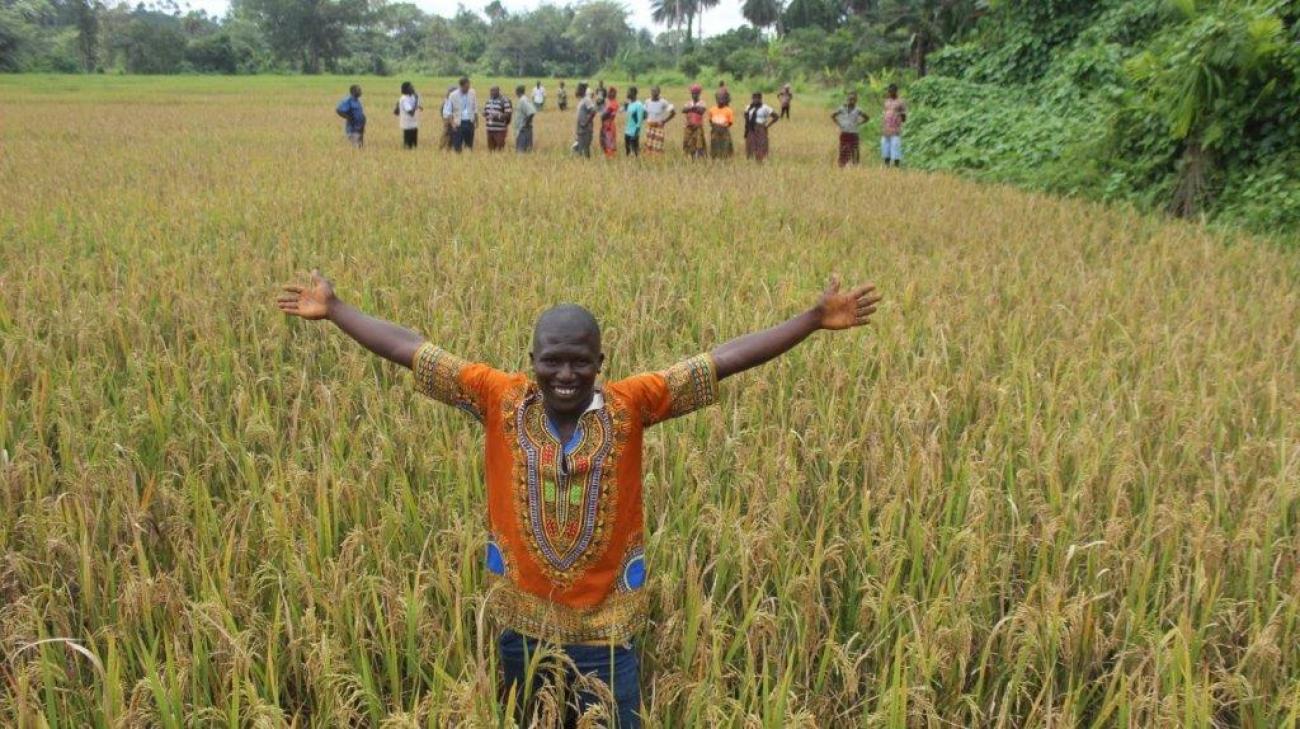In the heart of Yumbuma village Kenema district in eastern Sierra Leone, nestled among vast cocoa and oil palm plantations, lives a young man named Saidu Juana, affectionately known as Pajet. Pajet is 29 years old, and his family is known for their small mud house and their thriving farming business. For generations, they have been subsistence farmers, cultivating crops like cocoa, oil palm, and various fruits across their seven acres of land.
The young agricultural champion has not forgotten his past. Drawing from his experience as a commercial motorcycle rider, he urges his fellow bikers to consider agriculture as a sustainable alternative to the risky riding profession. His influence has led some to abandon commercial riding and embrace farming as a career.
As a young man, Pajet had always admired the agricultural lifestyle of his family, he saw the potential for prosperity in investing time and effort in inland valley swamp farming, believing it was more profitable than upland rice farming in that it ensured year-round cultivation. Despite being a senior high school graduate, he felt a natural calling to serve his community through agriculture. Trained by the World Food Programme (WFP) in partnership with the Ministry of Agriculture and Food Security, his passion and knowledge earned him the trust of fellow farmers and farming organizations in the surrounding communities.
However, Pajet faced challenges as he pursued his dream. Some people doubted his agronomic skills because he had not acquired them from a technical institute. But he pointed to the success of his community as the leading farming group, working closely with the World Food Programme (WFP). Their hard work and commitment had made them the highest producers and suppliers of locally grown rice and vegetables to WFP’s Home-Grown School Feeding, earning them valuable equipment like a power tiller, rice mill, and thresher.
Living in a community with poor infrastructure and communication, Pajet relies on the Ministry of Agriculture's field extension workers who are exceedingly rare, for information on best agronomic practices. He actively shares this knowledge with his community, emphasizing crucial aspects such as nursery establishment and irrigation to ensure high yields year-round. Like Pajet, over 145 Community Youth Contractors have been trained and equipped with motorbikes in the past two years to cascade agronomic best practices to farmers and to back-stop field extension officers.
But Pajet's efforts do not stop at agronomy alone. He is known for his genuine interest in empowering women in his community, advocating for their increased involvement in the farming cooperative. His interactive skills and support led to increased annual yields and recognition for the women's hard work.
Pajet's commitment to spreading agricultural knowledge extends beyond his community. He has trained key members of farming groups he supports, ensuring that his best practices would continue even after his youth contractor role ends. He is a reliable focal point in sharing technical expertise from the Ministry of Agriculture in their absence.
Pajet's teaching methods are simple yet effective. He teaches farmers to determine the spacing between rice seedlings using their thumbs and little fingers and the depth to sow rice seedlings using their middle fingers. He also introduced a novel weeding technique by allowing water to flow out of rice plots, making it easier to spot and remove weeds.
As he looks towards the future, Pajet sees a brighter path beyond the challenges that might come his way. He knows he can always rely on the support of his community to continue spreading his agronomic practices and transforming lives through agriculture.






